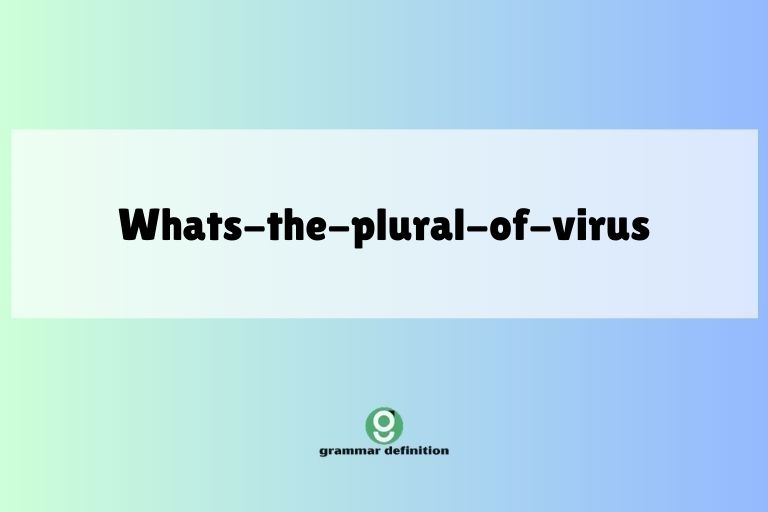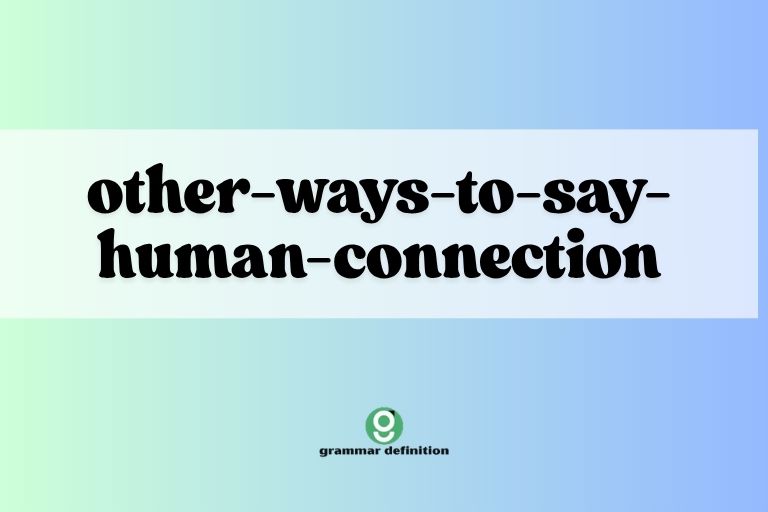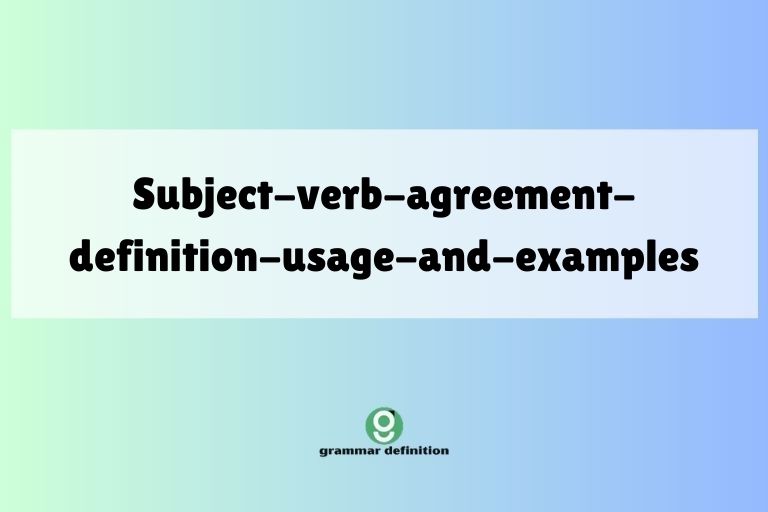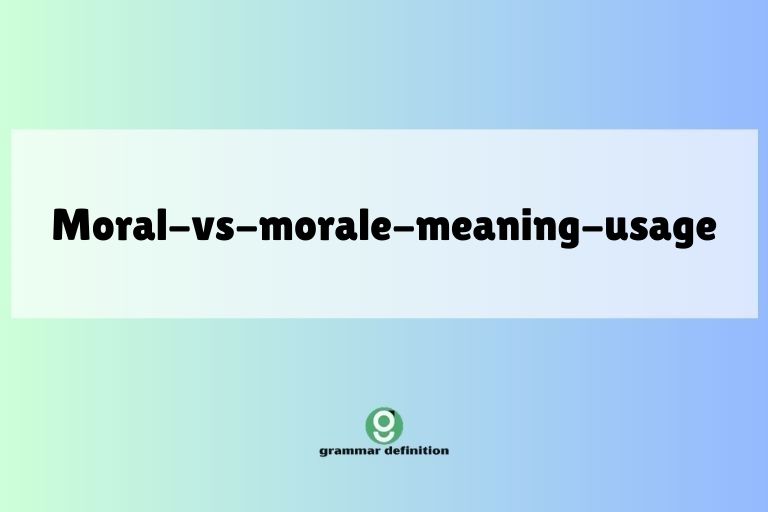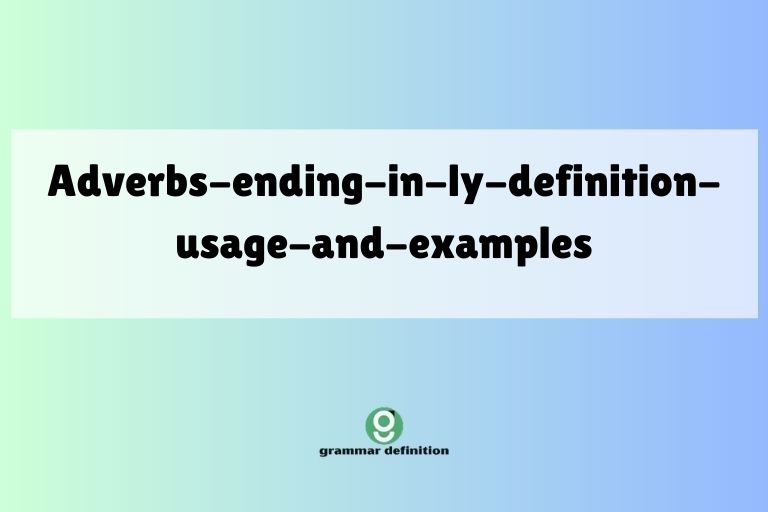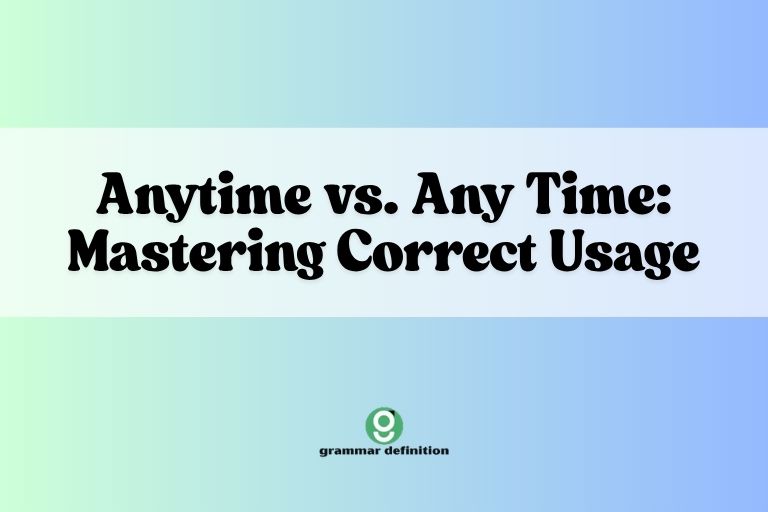Situational Irony: Meaning, Types, and Examples
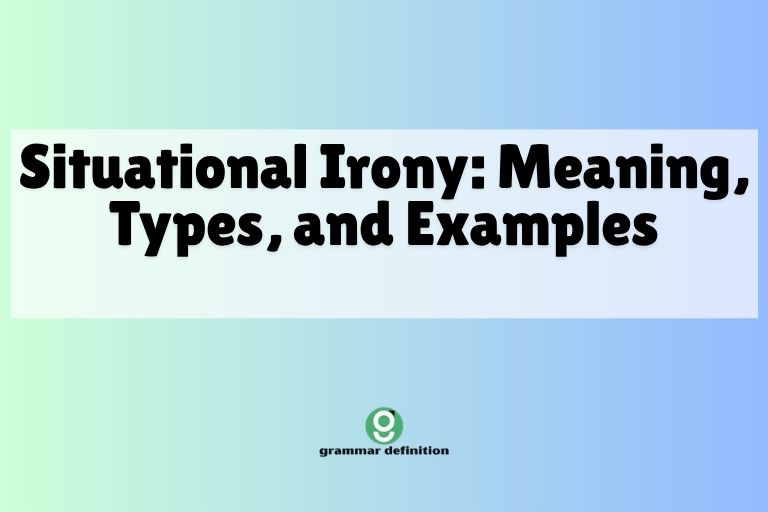
Situational irony is a powerful literary device that adds depth and complexity to narratives, humor, and everyday communication. It occurs when the outcome of a situation is drastically different from what is expected or intended.
Understanding situational irony is essential for comprehending literature, appreciating humor, and recognizing the unexpected twists in life. This article provides a comprehensive guide to situational irony, exploring its definition, types, usage, and common mistakes.
Whether you’re a student, writer, or simply an avid reader, this guide will enhance your understanding and appreciation of this fascinating literary tool.
This guide is designed for students of literature, creative writers, English language learners, and anyone interested in deepening their understanding of literary devices. By mastering the concept of situational irony, you can improve your analytical skills, enhance your writing, and gain a more nuanced perspective on the world around you.
Table of Contents
- Definition of Situational Irony
- Structural Breakdown of Situational Irony
- Types of Situational Irony
- Examples of Situational Irony
- Usage Rules for Situational Irony
- Common Mistakes with Situational Irony
- Practice Exercises
- Advanced Topics in Situational Irony
- Frequently Asked Questions (FAQ)
- Conclusion
Definition of Situational Irony
Situational irony occurs when the outcome of a situation is the opposite of what is expected. It involves a discrepancy between what is anticipated and what actually happens. This unexpected twist often creates a sense of surprise, humor, or tragedy, depending on the context. It’s a powerful literary device used to highlight themes, develop characters, and engage the audience.
Unlike verbal irony, where a speaker says one thing but means another, situational irony focuses on the circumstances themselves. The audience or characters may expect a specific outcome, but the reality deviates significantly from that expectation.
This difference between expectation and reality is the core of situational irony.
Situational irony is not simply a coincidence or an unfortunate event. It requires a sense of appropriateness or connection between the expected outcome and the actual outcome.
The irony arises from the audience or character realizing the incongruity of the situation. This realization often leads to a deeper understanding of the themes or messages the author or storyteller is trying to convey.
Structural Breakdown of Situational Irony
The structure of situational irony can be broken down into three key elements:
- Expectation: The audience or characters have a clear expectation of what should happen. This expectation can be based on prior knowledge, established patterns, or inherent logic within the story or situation.
- Reality: The actual outcome is the opposite of what was expected. This unexpected twist disrupts the established order and creates a sense of incongruity.
- Recognition: The audience or characters recognize the discrepancy between expectation and reality. This recognition is crucial for the irony to be effective. It allows for a deeper understanding of the themes or messages being conveyed.
To illustrate this structural breakdown, consider a simple example: A fire station burns down. The expectation is that a fire station, equipped with firefighters and fire-fighting equipment, should be immune to fire.
The reality is that the fire station itself becomes a victim of fire. The recognition of this incongruity is what makes the situation ironic.
Situational irony often relies on the element of surprise. The unexpected outcome is often revealed at a critical moment, creating a dramatic effect.
This surprise can be used to heighten tension, create humor, or deliver a powerful message.
Types of Situational Irony
While situational irony generally involves a discrepancy between expectation and reality, there are specific types that highlight different aspects of this literary device.
Cosmic Irony
Cosmic irony, also known as the irony of fate, suggests that a higher power or the universe is manipulating events to mock or frustrate human efforts. It often involves a sense of helplessness and the futility of human actions in the face of an indifferent or malevolent cosmos. Characters may strive towards a goal, only to be thwarted by circumstances beyond their control, highlighting the absurdity of existence.
In cosmic irony, the focus is not on individual actions or choices but on the larger forces at play. The characters are often victims of circumstance, and their efforts to control their destiny are ultimately futile.
This type of irony often evokes a sense of tragedy and despair.
Consider the story of a man who spends his entire life trying to avoid a specific fate, only to unknowingly contribute to its fulfillment. This is an example of cosmic irony, where the universe seems to be playing a cruel joke on the character.
Poetic Irony
Poetic irony focuses on the idea that good actions are ultimately rewarded, and evil actions are punished. However, the way these rewards and punishments are meted out is often unexpected or ironic. It’s a form of justice, but one that is delivered in a surprising or paradoxical manner.
Poetic irony doesn’t always involve positive outcomes for good actions. Sometimes, the reward is a deeper understanding or a sense of inner peace.
Similarly, the punishment for evil actions may not be immediate or obvious but may manifest in subtle or unexpected ways.
For example, a corrupt politician might amass great wealth and power through dishonest means, only to lose everything in a scandal that exposes their true nature. This is an example of poetic irony, where the politician’s actions ultimately lead to their downfall.
Examples of Situational Irony
Situational irony is prevalent in various forms of media and everyday life. Understanding these examples can help you identify and appreciate situational irony in different contexts.
Situational Irony in Literature
Literature is rife with examples of situational irony, used to create dramatic tension, develop characters, and explore themes.
The following table presents examples of situational irony in literature. Each example includes the work, a brief description of the ironic situation, and an explanation of why it constitutes situational irony.
| Work | Description | Explanation |
|---|---|---|
| Oedipus Rex by Sophocles | Oedipus tries to avoid the prophecy that he will kill his father and marry his mother, but his actions to avoid it ultimately lead to its fulfillment. | Oedipus’s attempts to escape his fate ironically cause him to fulfill it. |
| Romeo and Juliet by William Shakespeare | Romeo believes Juliet is dead and kills himself, only for Juliet to wake up moments later and find him dead. | Romeo’s suicide, based on a false belief, leads to Juliet’s actual death, creating a tragic irony. |
| The Gift of the Magi by O. Henry | A young couple each sell their most prized possession to buy the other a gift, only to find that the gifts are useless because of their actions. | Their sacrifices, intended to show love, ironically render the gifts impractical. |
| Animal Farm by George Orwell | The animals overthrow the human farmers to create a society of equality, but the pigs become even more tyrannical than the humans. | The animals’ revolution, intended to create a better society, ironically leads to a worse form of oppression. |
| The Cask of Amontillado by Edgar Allan Poe | Montresor lures Fortunato into the catacombs under the pretense of tasting Amontillado, only to wall him up alive as an act of revenge. | Fortunato, confident in his connoisseurship, is lured to his death, highlighting the irony of his perceived expertise. |
| Pride and Prejudice by Jane Austen | Elizabeth Bennet initially dislikes Mr. Darcy based on his perceived arrogance, only to later fall in love with him after realizing her initial judgment was flawed. | Elizabeth’s initial prejudice leads her to misjudge Darcy, creating an ironic twist when she later recognizes his true character. |
| The Importance of Being Earnest by Oscar Wilde | Jack Worthing invents a fictional brother named Ernest to escape his responsibilities, only to discover that he actually has a brother named Ernest. | Jack’s fabricated identity ironically becomes his true identity, creating a comedic twist. |
| Heart of Darkness by Joseph Conrad | Marlow travels to the Congo to find Kurtz, a man renowned for his ivory trading skills, only to discover Kurtz has become a brutal and savage tyrant. | Kurtz, initially portrayed as a successful trader, is revealed to be a symbol of moral corruption, highlighting the dark side of colonialism. |
| Frankenstein by Mary Shelley | Victor Frankenstein creates a creature to conquer death, but his creation becomes a source of destruction and ultimately leads to Victor’s own demise. | Victor’s ambition to overcome death ironically results in his own destruction and the death of his loved ones. |
| To Kill a Mockingbird by Harper Lee | The townspeople condemn Tom Robinson, an innocent black man, based on racial prejudice, while ignoring the actual perpetrator of the crime, Bob Ewell. | The community’s prejudice blinds them to the truth, leading to a miscarriage of justice and highlighting the irony of their moral failings. |
| The Great Gatsby by F. Scott Fitzgerald | Jay Gatsby amasses a fortune in an attempt to win back Daisy Buchanan, only to realize that she is incapable of reciprocating his idealized love. | Gatsby’s pursuit of wealth and status, intended to win Daisy’s affection, ultimately proves futile, revealing the emptiness of the American Dream. |
| One Flew Over the Cuckoo’s Nest by Ken Kesey | Randle McMurphy enters a mental institution to avoid prison labor, only to find himself trapped and subjected to even more oppressive control. | McMurphy’s attempt to escape punishment ironically leads to greater confinement and control. |
| The Handmaid’s Tale by Margaret Atwood | In Gilead, a society built on religious extremism, the leaders are often hypocritical and engage in the very behaviors they condemn. | The leaders of Gilead, who preach strict morality, ironically engage in immoral and oppressive practices. |
| 1984 by George Orwell | The Ministry of Truth is responsible for spreading propaganda and manipulating historical records, creating a false reality for the citizens of Oceania. | The Ministry of Truth, designed to uphold truth, ironically perpetuates lies and distortions. |
| Lord of the Flies by William Golding | A group of British schoolboys stranded on a deserted island attempt to create a civilized society, but they descend into savagery and violence. | The boys’ initial efforts to establish order ironically lead to chaos and brutality. |
| The Picture of Dorian Gray by Oscar Wilde | Dorian Gray wishes that his portrait would age instead of him, and his wish comes true, but the portrait reflects his moral decay while he remains youthful. | Dorian’s desire for eternal youth ironically leads to his moral corruption and the horrifying reflection of his true self in the portrait. |
| A Doll’s House by Henrik Ibsen | Nora Helmer initially conforms to societal expectations of a wife and mother, only to realize that she must break free to find her own identity. | Nora’s apparent happiness and compliance ironically mask her inner dissatisfaction and the need for self-discovery. |
| Waiting for Godot by Samuel Beckett | Vladimir and Estragon wait endlessly for Godot, who never arrives, highlighting the absurdity and meaninglessness of their existence. | Their constant waiting for a savior who never comes ironically underscores the futility and lack of purpose in their lives. |
| Catch-22 by Joseph Heller | Yossarian tries to escape the war by claiming insanity, but the military rule that anyone who wants to avoid combat is sane prevents him from being grounded. | Yossarian’s attempt to escape the war ironically traps him in it, highlighting the absurdity of the military bureaucracy. |
| Don Quixote by Miguel de Cervantes | Don Quixote sets out to revive chivalry and right the wrongs of the world, but his idealistic delusions lead to comical and often disastrous consequences. | Quixote’s noble intentions ironically result in absurdity and failure, highlighting the contrast between idealism and reality. |
Situational Irony in Film
Film often employs situational irony to surprise and engage the audience. The unexpected twists and turns can create suspense, humor, or dramatic impact.
The following table shows examples of situational irony in film. Each example includes the film title, a brief description of the ironic situation, and an explanation of why it constitutes situational irony.
| Film | Description | Explanation |
|---|---|---|
| The Sixth Sense | A child psychologist spends the entire movie trying to help a boy who claims to see dead people, only to realize at the end that he himself is a ghost. | The psychologist’s dedication to helping others is ironic because he is unaware of his own condition. |
| Psycho | Marion Crane steals money to start a new life, but her attempt to escape her problems leads her to the Bates Motel and her untimely death. | Marion’s attempt to improve her life ironically leads to her demise. |
| The Truman Show | Truman Burbank lives his entire life unaware that he is the star of a reality TV show, and his every move is being watched by millions. | Truman’s perceived freedom and autonomy are ironic because he is actually living in a carefully constructed illusion. |
| Fight Club | The narrator seeks to escape his mundane life by joining a fight club, only to discover that he is the leader of the underground movement and is battling his own alter ego. | The narrator’s attempt to find meaning in his life ironically leads him to a deeper psychological crisis. |
| The Usual Suspects | Verbal Kint, a seemingly harmless con man, recounts the story of a legendary criminal named Keyser Söze, only to reveal at the end that he is Keyser Söze himself. | Verbal’s portrayal of himself as a weak and insignificant figure is ironic because he is actually a master manipulator. |
| O Brother, Where Art Thou? | The escaped convicts are trying to get back to their homes and families, but they ironically become local heroes and celebrities during their journey. | Their attempt to remain hidden and avoid capture ironically leads to fame and recognition. |
| The Lion King | Scar plots to become king by killing Mufasa, but his actions ultimately lead to his own downfall and the return of Simba to the throne. | Scar’s ambition to gain power ironically results in his own destruction. |
| The Dark Knight | Harvey Dent becomes the symbol of hope for Gotham City, but he is corrupted by the Joker and transforms into the villain Two-Face. | Harvey’s initial promise as a hero ironically leads to his descent into villainy. |
| The Matrix | Neo is told that he is “The One” who will save humanity, but he initially rejects his destiny and struggles to accept his powers. | Neo’s initial resistance to his role as “The One” ironically delays the salvation of humanity. |
| Parasite | The Kim family infiltrates the wealthy Park family’s household, but their attempt to improve their lives leads to a series of tragic events. | The Kim family’s desire for a better life ironically results in violence and chaos. |
| Jaws | The town’s mayor insists on keeping the beaches open to boost tourism, despite the presence of a deadly shark, resulting in more deaths and economic damage. | The mayor’s attempt to protect the town’s economy ironically leads to greater loss and devastation. |
| Titanic | The “unsinkable” ship, Titanic, sinks on its maiden voyage, highlighting the hubris and overconfidence of its creators. | The ship’s reputation for being unsinkable ironically becomes a symbol of its tragic fate. |
| War of the Worlds (2005) | Humans are helpless against the technologically advanced alien invaders, but the aliens are ultimately defeated by Earth’s microbes, which they have no immunity to. | The aliens’ vulnerability to something as simple as Earth’s microbes is ironic given their advanced technology. |
| Arrival | Louise Banks learns the alien language to understand their intentions, but in doing so, she gains the ability to see the future, which includes the death of her child. | Louise’s pursuit of knowledge ironically leads to her awareness of a heartbreaking future. |
| The Village | The villagers live in fear of creatures in the woods, only to discover that the elders created the myth to keep them isolated and safe from the outside world. | The villagers’ fear of external threats ironically stems from a fabricated danger designed to protect them. |
| Shutter Island | Teddy Daniels investigates a mental institution for a missing patient, only to discover that he is a patient himself, suffering from delusions. | Teddy’s role as an investigator ironically masks his own mental instability and the truth about his past. |
| Memento | Leonard Shelby suffers from short-term memory loss and relies on tattoos and notes to track down his wife’s killer, but his condition makes him unreliable and easily manipulated. | Leonard’s attempt to seek justice is ironically hampered by his own memory impairment. |
| Se7en | Detectives Somerset and Mills investigate a series of murders based on the seven deadly sins, only to become victims of the killer’s twisted plan. | The detectives’ pursuit of justice ironically leads them to become part of the killer’s macabre design. |
| The Others | Grace Stewart protects her children from sunlight because they are supposedly allergic, only to discover that they are actually ghosts haunting their own home. | Grace’s efforts to shield her children from harm ironically stem from a misunderstanding of their true nature. |
| The Prestige | Two rival magicians engage in a deadly game of one-upmanship, pushing themselves to extreme lengths to outdo each other, with tragic consequences. | Their obsession with achieving the ultimate magic trick ironically leads to their destruction and the loss of everything they hold dear. |
Situational Irony in Everyday Life
Situational irony is not limited to literature and film; it also occurs in everyday life, often providing a humorous or ironic twist to mundane events.
The following table illustrates examples of situational irony in everyday life. Each example includes a brief description of the ironic situation and an explanation of why it constitutes situational irony.
| Situation | Description | Explanation |
|---|---|---|
| A traffic cop gets a speeding ticket. | A police officer, whose job is to enforce traffic laws, violates those laws and receives a ticket. | The irony lies in the fact that the officer is being penalized for the very behavior they are supposed to prevent. |
| A marriage counselor files for divorce. | A professional whose job is to help couples resolve their marital issues cannot save their own marriage. | The irony stems from the counselor’s inability to apply their own expertise to their personal life. |
| A lifeguard drowns. | A person trained to rescue others from drowning becomes a victim of drowning themselves. | The irony is that the lifeguard, whose primary role is to save lives in the water, loses their own life in the same environment. |
| A vegan wearing leather shoes. | A person who advocates for animal rights and abstains from eating animal products is wearing shoes made from animal skin. | The irony is that the vegan is supporting the leather industry, which contradicts their ethical stance. |
| A technology expert’s computer crashes. | A person knowledgeable about computers and technology experiences a technical malfunction. | The irony lies in the fact that the expert is facing a problem they are typically expected to solve. |
| A health guru gets sick after promoting healthy living. | An individual preaching about healthy living habits unexpectedly falls ill. | The irony is that the health guru is experiencing the very thing they are trying to prevent. |
| A pilot afraid of heights. | Someone who flies planes for a living is afraid of heights. | The irony is that their profession requires them to be high in the air, something they are personally afraid of. |
| A dentist with bad teeth. | A dental professional has poor oral hygiene. | The irony is that the dentist, who should have perfect teeth, has dental problems. |
| A baker who doesn’t like cake. | A person who bakes cakes dislikes them. | The irony is that they create something they don’t enjoy themselves. |
| A professional organizer with a messy house. | Someone who helps others organize their spaces has clutter in their own home. | The irony is that they are unable to apply their professional skills at home. |
| A personal trainer who is out of shape. | A fitness professional does not maintain their own physical fitness. | The irony is that they advise others to be fit while not being in shape themselves. |
| A security guard getting robbed. | The person hired to protect a place or person becomes a victim of theft. | The irony is that their job is to prevent what happened to them. |
| A weatherman predicting sunny weather, only for it to rain. | The forecast is incorrect, and the opposite weather occurs. | The irony is that the job relies on predicting the weather, but it can be wrong. |
| A librarian who loses books. | The person in charge of organizing and keeping track of books loses them. | The irony is that it is their job to maintain books. |
| A chef who eats fast food every day. | A culinary expert prefers unhealthy food. | The irony is that they can cook gourmet meals but choose to eat poorly. |
| A motivational speaker who is depressed. | Someone who encourages others to be positive is struggling with depression. | The irony is that they cannot follow their own advice. |
| A financial advisor who goes bankrupt. | A money expert experiences financial failure. | The irony is that they couldn’t manage their own finances. |
| A plumber whose own pipes leak. | A plumbing professional has plumbing issues at home. | The irony is that they can’t fix their own plumbing problems. |
| A computer programmer who can’t fix their own printer. | A tech expert cannot fix a simple printer issue. | The irony is that their expertise does not extend to basic tech problems. |
| A writer with writer’s block. | A professional writer cannot come up with new ideas. | The irony is that they are unable to do what they are paid to do. |
Situational Irony in News Headlines
News headlines can sometimes be unintentionally ironic, highlighting the unexpected or paradoxical nature of events.
The following table provides examples of situational irony in news headlines. Each example includes the headline and an explanation of the irony.
| Headline | Explanation |
|---|---|
| “Police Station Burglarized” | The irony lies in the fact that the very place meant to protect against crime becomes a victim of it. |
| “Fire Safety Inspector’s Home Burns Down” | The irony is that someone whose job is to ensure fire safety experiences a fire at their own home. |
| “Security Firm Suffers Data Breach” | The irony is that a company specializing in security is itself vulnerable to a security breach. |
| “Anti-Drug Campaign Leader Arrested for Drug Possession” | The irony is that someone advocating against drug use is caught using drugs themselves. |
| “Environmental Conference Plagued by Power Outage” | The irony is that an event focused on environmental issues is disrupted by a lack of energy. |
| “Study Finds Stress Balls Increase Stress Levels” | The irony is that a product designed to relieve stress actually makes it worse. |
| “Diet Book Author Dies of Obesity-Related Illness” | The irony is that someone who wrote about dieting and weight loss dies from a weight-related condition. |
| “Marriage Counselor Divorces Wife After 20 Years” | The irony is that a marriage expert cannot maintain their own marriage. |
| “Lottery Winner Declares Bankruptcy” | The irony is that someone who won a large sum of money ends up broke. |
| “Accident Investigation Team Involved in Car Crash” | The irony is that a team investigating car accidents is involved in one themselves. |
Situational Irony in Historical Events
History is full of events where the outcome was the opposite of what was intended or expected, demonstrating situational irony on a grand scale.
The following table provides examples of situational irony in historical events. Each example includes the event and an explanation of the irony.
| Event | Explanation |
|---|---|
| The Prohibition Era in the United States | The attempt to ban alcohol to reduce crime and improve society ironically led to an increase in organized crime and illegal activities. |
| The Maginot Line in France | The heavily fortified line was built to prevent a German invasion, but the Germans simply bypassed it during World War II. |
| The Vietnam War | The US intervention aimed to prevent the spread of communism, but it resulted in significant loss of life and ultimately failed to achieve its goal. |
| The construction of the Berlin Wall | Built to prevent people from fleeing East Germany, the wall became a symbol of oppression and ultimately fueled the desire for reunification. |
| The Bay of Pigs Invasion | The CIA-backed attempt to overthrow Fidel Castro in Cuba failed miserably and strengthened Castro’s position. |
| The French Revolution | The revolution aimed to establish a more egalitarian society, but it resulted in the Reign of Terror and eventually Napoleon’s dictatorship. |
| The invention of dynamite by Alfred Nobel | Nobel intended dynamite to be used for peaceful purposes, such as construction, but it became widely used in warfare. |
| The Scopes Trial | The trial aimed to uphold traditional religious beliefs, but it ultimately brought increased attention to the theory of evolution and challenged those beliefs. |
| The Y2K scare | The widespread fear that computers would malfunction at the turn of the millennium led to extensive preparations, but the actual impact was minimal. |
| The Strategic Defense Initiative (Star Wars) | The plan to create a space-based missile defense system was intended to enhance national security, but it was never fully realized and was widely criticized as impractical. |
Usage Rules for Situational Irony
To effectively use situational irony, it’s important to follow certain guidelines:
- Establish Expectations: Clearly set up the audience’s expectations so that the ironic outcome is surprising and meaningful.
- Create a Discrepancy: Ensure a significant difference between what is expected and what actually happens.
- Maintain Relevance: The ironic outcome should be related to the initial situation, not a random or unrelated event.
- Consider Tone: Use situational irony appropriately for the desired effect, whether it’s humor, suspense, or tragedy.
- Avoid Overuse: Too much situational irony can make the story predictable and lose its impact.
It is important to distinguish situational irony from simple misfortune. For an event to be considered ironic, there must be a clear expectation that is subverted in a meaningful way.
A random accident, while unfortunate, may not necessarily be ironic.
Context is also crucial. What might be considered ironic in one situation may not be in another.
Understanding the cultural and social context is essential for effectively using and interpreting situational irony.
Common Mistakes with Situational Irony
Several common mistakes can dilute or misrepresent situational irony:
| Mistake | Correct Example | Incorrect Example |
|---|---|---|
| Confusing it with coincidence. | A detective solves a case by accidentally stumbling upon the key piece of evidence. | Someone trips and falls down the stairs. |
| Misunderstanding it as bad luck. | A lifeguard drowns while trying to save someone. | Someone gets a flat tire on the way to work. |
| Overusing it, making it predictable. | Every character’s plans backfire in a story. | Situational irony is used sparingly and effectively. |
| Failing to establish clear expectations. | The audience knows a character is a fraud, but other characters do not. The fraud is revealed. | The audience is unaware of the character’s true nature, and the revelation feels random. |
| Using it inappropriately for the tone. | Using dark situational irony in a lighthearted comedy. | Using situational irony to highlight the tragic consequences of a character’s actions in a drama. |
Another common mistake is confusing situational irony with verbal irony. Verbal irony involves saying one thing but meaning another, while situational irony focuses on the discrepancy between expectation and reality.
Finally, some writers mistakenly believe that any unexpected event constitutes situational irony. For it to be truly ironic, there must be a clear contrast between what is expected and what actually occurs, and this contrast must have some significance or meaning.
Practice Exercises
Test your understanding of situational irony with these exercises:
Exercise 1: Identify the Situational Irony
Read each scenario and explain why it constitutes situational irony.
| Question | Answer | |
|---|---|---|
| A chef known for their exquisite desserts is diagnosed with diabetes. | The irony lies in the fact that someone who specializes in creating sweet treats is unable to indulge in them due to a health condition. | |
| A fitness instructor suffers a heart attack. | The irony is that someone who promotes physical fitness experiences a health issue related to heart health. | |
| A security system is installed to prevent theft, but the installation crew steals valuable items during the process. | The irony is that the very system designed to protect against theft becomes the means through which theft occurs. | |
| A grammar teacher consistently makes grammatical errors in their own writing. | The irony is that someone who is supposed to be an expert in grammar makes mistakes in their own work. | |
| A politician campaigning against corruption is caught accepting bribes. | The irony is that someone who publicly opposes corruption engages in corrupt practices themselves. | |
| A lifeguard who doesn’t know how to swim. | The irony is that a person whose job is to save people from drowning is unable to swim themselves. | |
| A fire station burns down. | The irony is that a building designed to protect against fire is destroyed by fire. | |
| A peace | A peace treaty is signed, but the signing ceremony sparks a new conflict. | The irony is that an agreement intended to bring peace leads to further conflict and violence. |
Exercise 2: Create Your Own Examples
Provide original examples of situational irony in the following contexts:
- Everyday Life: A technology company’s office has outdated computers.
- Literature: A character seeks fame and fortune but loses everything in the process.
- Film: A superhero saves the world but is unable to save their own family.
Exercise 3: Correct the Mistake
Identify the mistake in each example and provide a corrected version that demonstrates situational irony.
- Incorrect: It rained on a picnic.
- Corrected: A picnic organized to celebrate drought relief is rained out.
- Incorrect: Someone lost their keys.
- Corrected: A locksmith gets locked out of their own house.
- Incorrect: A car broke down.
- Corrected: A mechanic’s car breaks down on the way to a repair shop.
Advanced Topics in Situational Irony
For a deeper understanding of situational irony, consider these advanced topics:
- The Role of Perspective: Situational irony can be subjective, depending on the audience’s perspective and knowledge.
- Situational Irony and Dramatic Tension: How situational irony can be used to create suspense and anticipation in a narrative.
- Ethical Considerations: The ethical implications of using situational irony to manipulate or deceive characters or audiences.
- Cross-Cultural Interpretations: How cultural differences can affect the interpretation and appreciation of situational irony.
Exploring these advanced topics can provide a more nuanced understanding of situational irony and its applications in various contexts. It also encourages critical thinking about the impact and implications of this literary device.
Frequently Asked Questions (FAQ)
What is the difference between situational irony, verbal irony, and dramatic irony?
Situational irony occurs when the outcome of a situation is the opposite of what is expected. Verbal irony involves saying one thing but meaning another. Dramatic irony occurs when the audience knows something that the characters do not.
Can situational irony be funny?
Yes, situational irony can be humorous when the unexpected outcome is amusing or absurd.
Is situational irony always intentional?
No, situational irony can be either intentional or unintentional. Sometimes, it occurs naturally without any deliberate planning.
How can I improve my ability to recognize situational irony?
Pay attention to details, consider expectations, and analyze the contrast between what is expected and what actually happens.
What are some common examples of situational irony in movies?
Examples include a police officer getting arrested, a fire station burning down, or a lifeguard drowning.
How does situational irony enhance storytelling?
It creates surprise, adds depth, and engages the audience by challenging their expectations and prompting them to think critically about the narrative.
Conclusion
Situational irony is a powerful literary device that enriches narratives, adds humor, and highlights the unexpected twists of life. By understanding its definition, structure, and types, you can better appreciate its use in literature, film, and everyday situations.
Avoiding common mistakes and following usage rules will enable you to effectively incorporate situational irony into your own writing and communication.
Mastering situational irony not only enhances your analytical and creative skills but also provides a deeper understanding of the complexities and contradictions of the world around you. Whether you’re a student, writer, or simply an avid observer, situational irony offers a valuable lens through which to view and interpret the unexpected turns of life.

